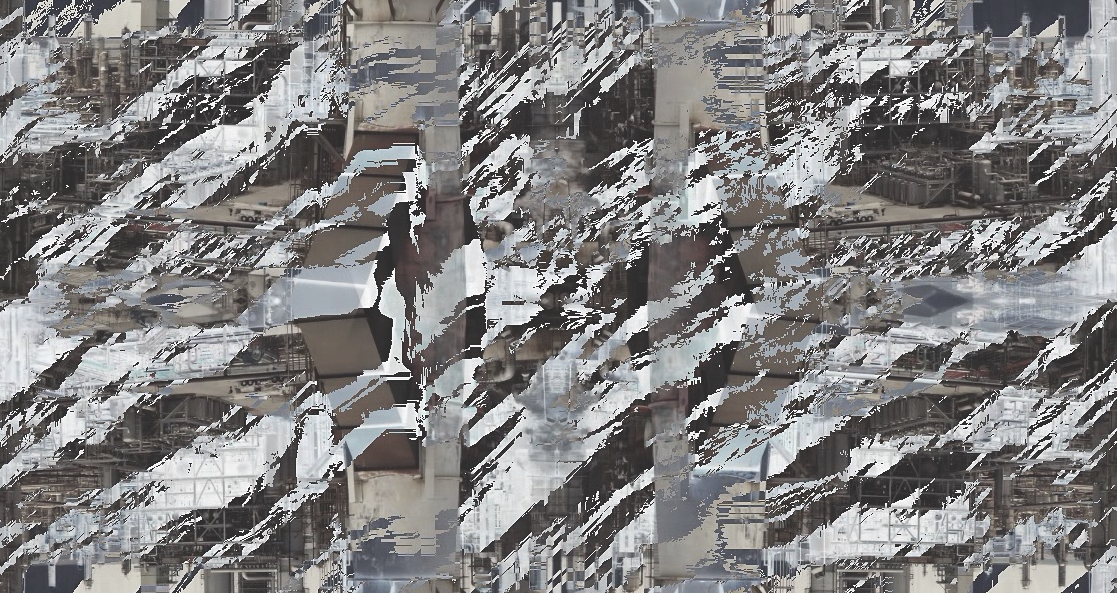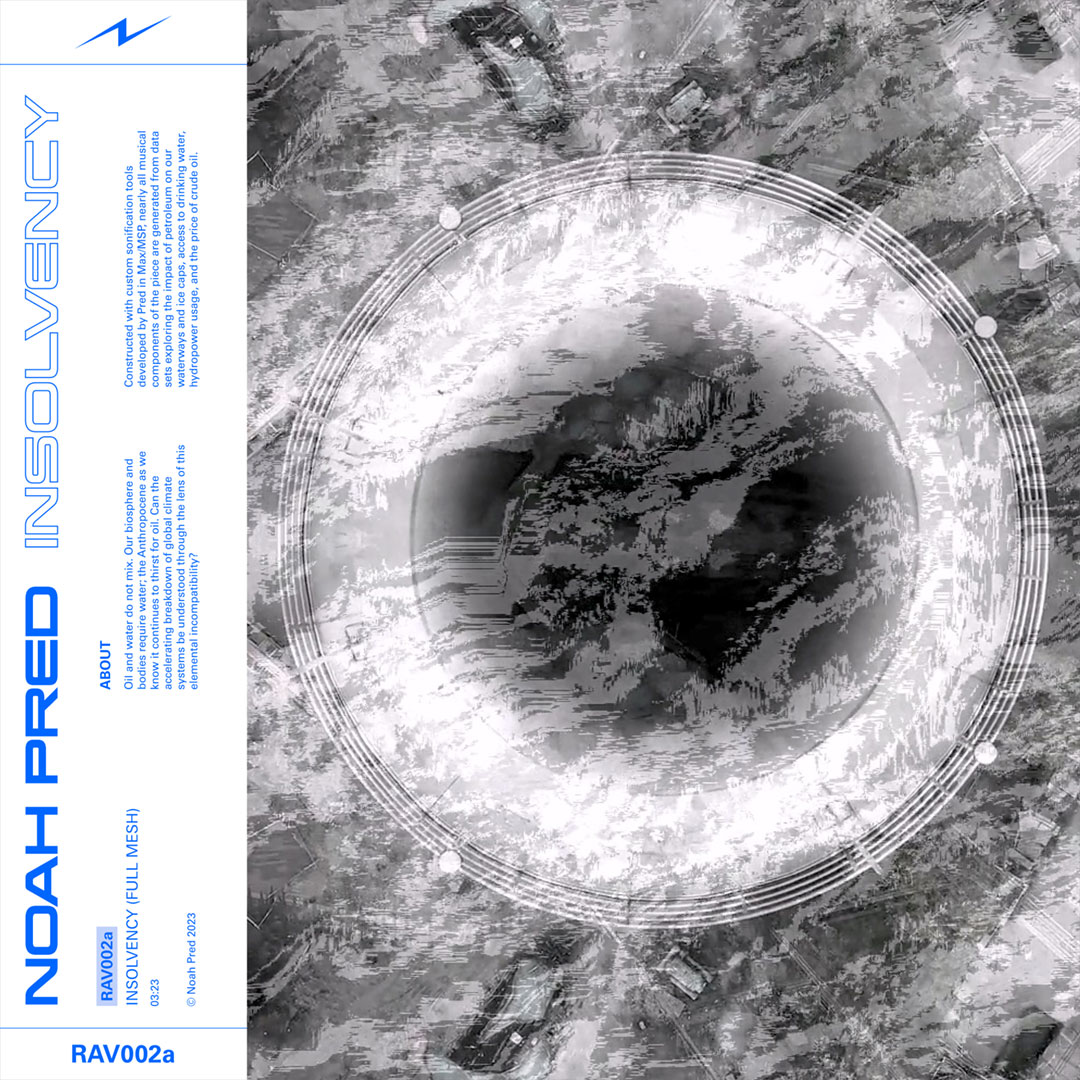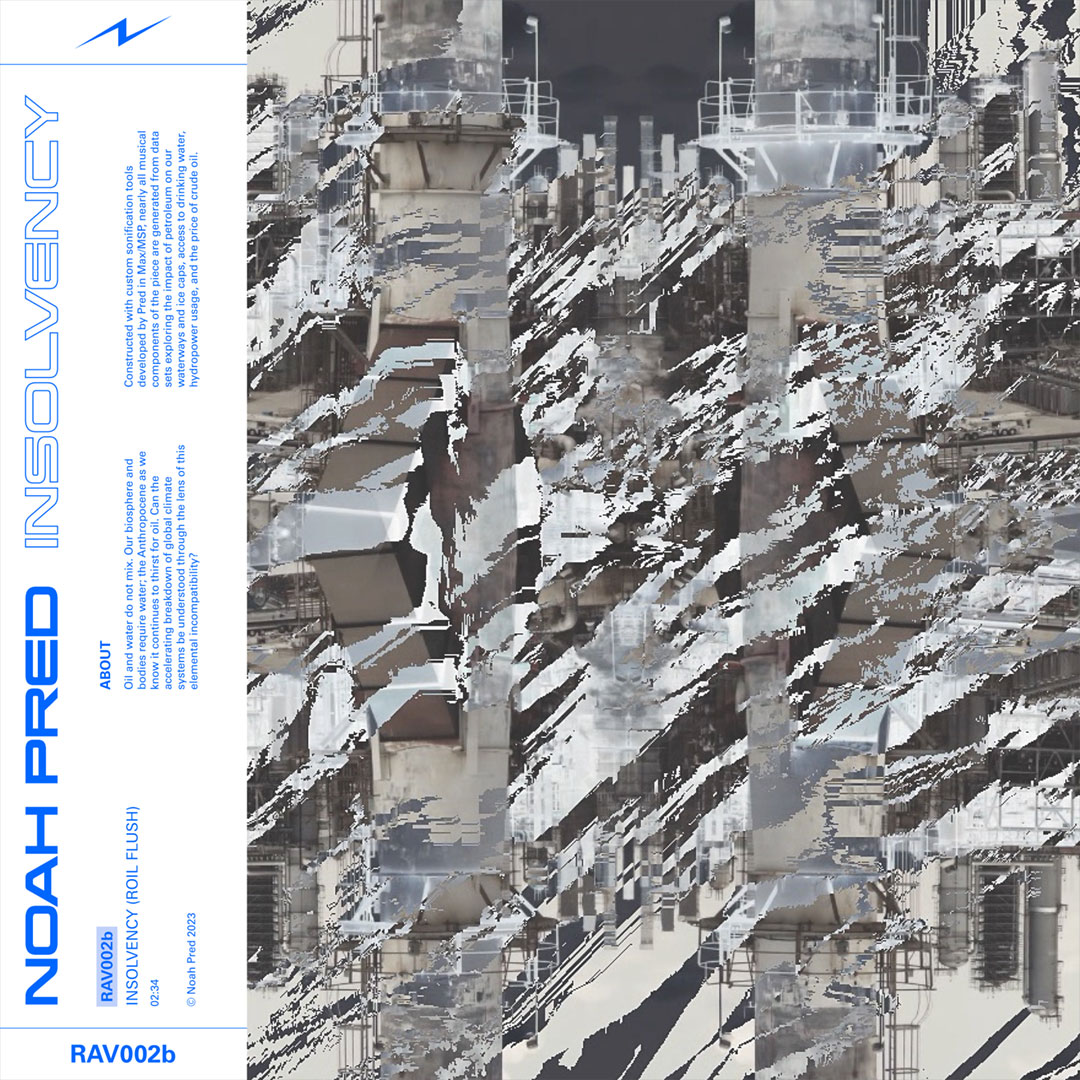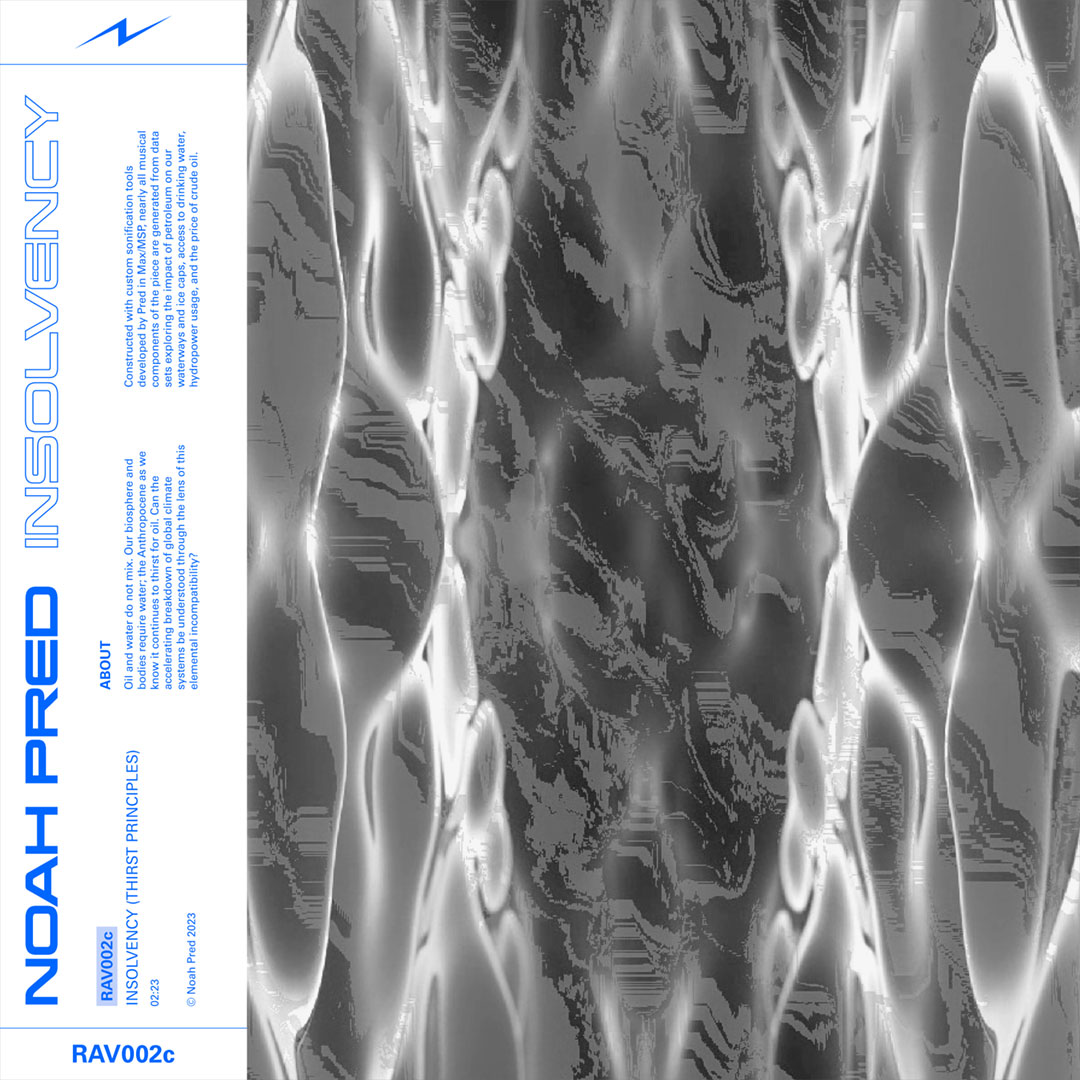
06 12 2023
by
NOAH PRED - INSOLVENCY
The below conversation explores the work of Noah Pred who is interested in exploring how sound can represent data. His multi-edition release “Insolvency” is available through R.AV on June 20th.

In an essay about the aesthetics of oil, the cultural theorist Jennifer Wenzel writes, "Oil is everywhere and nowhere. [Oil is] ubiquitous in our daily life, and yet we so rarely see oil, either literally or metaphorically." Wenzel is pointing to a problem increasingly important to artists as we continue to burn fossil fuels with abandon. If we are unable to see something like oil and, by extension, understand how entwined our lives are with these commodities, how can we understand the extent of the problem, yet alone start imagining solutions or alternatives?
The artist Noah Pred takes up Wenzel's provocation, but thinks about it acoustically. As he explains to me in a recent video call from his Berlin studio, we are awash in data related to the climate crisis, but often think of this entirely in visual terms. There is a fixation, as he says, on "converting data for visualization." In Pred’s work, however, he wanted to do something different. His project for R.AV, "Insolvency," asks if we can hear oil. What would it mean, in other words, to try and listen to anthropogenic climate crisis?
"Insolvency" approaches this head-on. To create the music, Pred built a set of sonification-based tools that allow him to input specific data sets and convert them into three different types of musical information. He can input any set of data (and by this he means a raw set of numbers) into the tools he's created in Max/MSP for Ableton Live and create a sequence of notes, the structure of a waveform, and/or the basis for modulation data that can change any musical parameter over time.

His goal with building these tools, he explains, differs slightly from traditional methods: "I wanted a different angle to embedding real world phenomena into the creative process through this idea of sonification. In scientific terms the practice of sonification is literally transcribing a dataset into audio - meant to be rigorously faithful to the data. This is not my intention. I want these datasets to be a seed for a creative process in which there is freedom to reinterpret the data or even just use it as a starting point.”
Working with these tools in Ableton, Pred accessed the Our World in Data website and looked at data related to the relationship between oil and water to explore a tension that exists in our current petro-culture. As he explains it to me: "Biologically we need water. Culturally, we need oil." He continues: "The theme that emerged from the data [centered on] water and oil and our thirst for both - biologically and culturally - and the contradictions in their failure to mix." Working through the database, he pulled data related to both of these substances - looking at information like global access to clean drinking water over time or the fluctuations in crude oil prices. Once he'd taken these data sets, he was able to plug them into the plug-ins that he'd created and generate different sounds that could be arranged and rearranged into feedback loops. The resulting music, as he describes it, "[mimics] the feedback loops of our Anthropocene."
"I am interested in finding a narrative based on the material that is generated," he says, "rather than imposing a narrative on the data sets." What Pred is flagging from the outset is the way that there's always an underlying narrative in how we think about data. This feels particularly pointed in our current "post-truth" epoch. What does it mean, he asks me, to have reliable data? His goal isn't to disappear and try to claim that we are literally hearing the unresolvable tension between oil and water play out in his work. As he points out, what would that even mean? Pred makes specific political and aesthetic choices in how he interprets data. The process meant that he was "embedding real world phenomena in a way that can be more activist than your typical approach to instrumental electronic music."
The resulting compositions underline this point. There is the slithery whiplash of Detroit electro where skeletal arpeggios modulate underneath a set of images culled from petroleum archives. As we watch oil rigs and desert fields move across space, the music builds to a purposeful sense of disorientation that is only lightly offset by the snake charmer melody that he introduces in the second half of "Insolvency (Full Mesh)" (a track named after the idea of ecological entanglement developed by philosopher Timothy Morton). On "Insolvency (Thirst Principles)", a disintegrating set of spectral noise and undulating pads create a tense ambient soundscape with visuals that mimic a world approaching the edge of entropy.

The resulting project for R.AV is asking tough questions. Plenty of people write records with liner notes gushing about how their records engage with climate change. More often than not this means you get an ambient soundscape with chirping birds or rushing water followed by abrasive sub bass stabs. These sonification tools, on the other hand, will let artists put their money where their mouth is. Pred enables artists to actually take the sound of oil and turn it into something different.
In this sense, I'm reminded of the work of the Métis scholar, artist, and activist Zoe Todd. Todd, who works and lives in the oil capital of Canada makes the argument that oil - as a material and substance - isn't in itself evil. It's only once we begin extracting oil for the sake of the endless expansion of capital that this moral dimension takes shape. For Todd, she wants to think about how we change our relationship to oil and, by extension, our relationship to the planet. She writes: "But, the insatiable desire to liberate these long-gone beings from their resting place, to turn the massive stores of carbon and hydrogen left from eons of life in this place, weaponizes these fossil-kin, these long-dead beings, and transforms them into threats to our very existence as humans in prairie metropolises like my hometown."
Pred's work is situated at a similar axis. Oil is here to stay. What his work wants to do is help us rethink our relationship to it. Creating not moments of weaponization (as Todd cautions against), but rather moments of aesthetic intimacy. And that is precisely what "Insolvency" strives toward.


About Noah Pred:
Noah Pred is a Canadian multimedia artist, sound designer, educator, and occasional DJ based in Berlin, Noah Pred has been envisioning the future through electronic music for nearly three decades. Coaxing vivid organic structures from a combination of analog synthesizers and his own custom-designed generative Max patches, his current work is focused on exploring measurable phenomena through sound.
https://noahpred.com/
https://www.instagram.com/noahpred
https://twitter.com/noahpred



